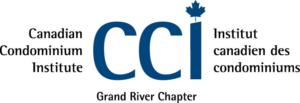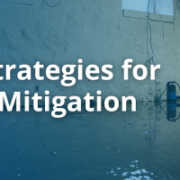Effective Strategies for Flood Risk Mitigation
A short list of the most expensive, unexpected condo corporation expenses will invariably include floods. Although flooding is an insurable loss, the impact of making insurance claims means that claims are only made in extreme cases. Often, the repair costs, which can easily range from thousands to tens of thousands of dollars, are shouldered by the corporation (i.e., the owners through payment of common expenses).
So, what can a corporation do to mitigate this risk? Several years ago, our board implemented some technology that has helped us keep flood damage costs in check Since I joined our board, it has proven to be one of the best investments we’ve made in our building.

The project started with the goal of addressing a completely different challenge. We suspected we were paying for a lot of water going down the drain due to leaky toilets. However, we had no way to quantify the scale of the problem or measure the effectiveness of any possible remediation plans.
A local startup that has matured into a well-recognized player in the industry had exactly what we needed. Alert Labs provided us with two wireless water meter readers. They strap onto a standard water meter and can read it without requiring any wiring. They are very low-power units. Our batteries lasted several years before needing to be replaced.

The magic of this system is that it tracks water usage by the minute and uses software to analyze the usage patterns to estimate how much water is leaking out of the system at any given time. Key to this analysis is that most residential buildings should have periods in the early morning hours with zero water usage.
An unexpected benefit of adopting this system was that we could very cost-effectively add flood sensors to mechanical rooms and washrooms throughout our building. The key to limiting damage from leaks is being able to react quickly when a leak starts. To do that, you need to know you have a leak. We have cleaning staff on-site six days a week who check washrooms and mechanical areas daily to ensure everything is okay. However, this means if a leak develops, it could continue undetected for hours.
The flood sensors are small wireless “pucks” that can be left on the floor anywhere in our building. If they get wet, they immediately trigger email or text messages to whomever has been set up to receive alerts.

In the three years we’ve had the system in place, we have had at least five situations where the flood monitoring has turned what could have been a major event into a minor inconvenience. In two of those cases, the weekend timing was such that we could easily have had 36 hours of water pouring into our basement area before anyone would have noticed it. We also had two significant floods on the fifth floor, which could have been extremely damaging had they not been caught and addressed quickly.
The flow monitoring system has also twice alerted us to a problem with our cooling tower that led to the system continuously dumping water down the drain from a wide-open feed valve. While there was no risk of flood damage in these cases, this is the type of major leak down the drain that could have continued for weeks or even months without anyone noticing. Catching and repairing these issues quickly undoubtedly saved us thousands of dollars.
Our entire system only cost a few thousand dollars. It’s simple and easy to manage and maintain. Since part of the goal of the implementation was water savings, our regional government even covered part of the cost with a water-saving grant. There is an annual monitoring fee of just a few hundred dollars.
We haven’t expanded the system beyond what we initially installed, but we could add more flood sensors for $150 a piece. The ten sensors we have cover all the common areas we are responsible for, but we are considering a program to allow owners to purchase flood monitors for use in their units. Significant unit floods often quickly leak into units below and can go undetected for some time if residents are not home. This would be a little more complicated to manage, but as units are sometimes the source of floods, it would add another level of protection for the corporation as well as the owners who participated.

Another potential enhancement is that the system can automatically shut the water off if a leak is detected, which may be appropriate in some situations.
Based on our years of experience, I can’t imagine running a large condo building without this equipment. It is cheap insurance that paid for itself in less than a year.

Written by: John Hayes, Director, CCI GRC






